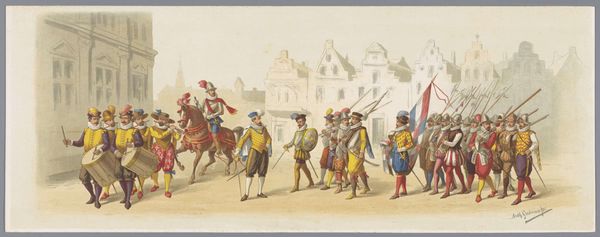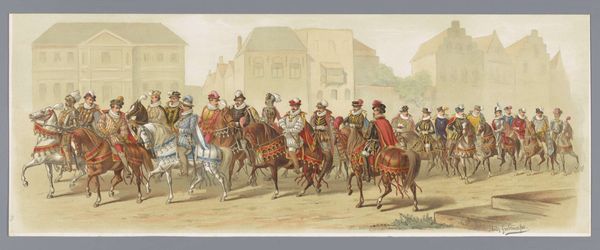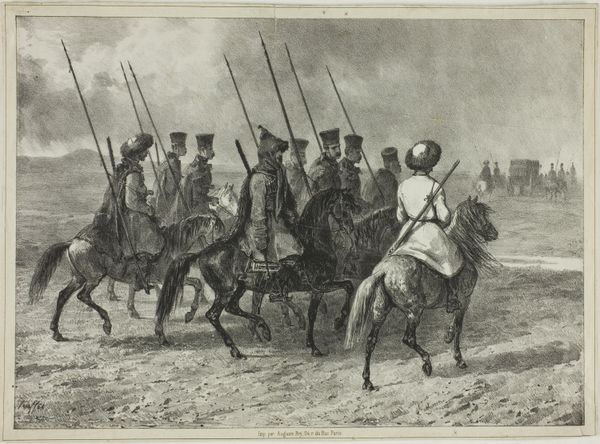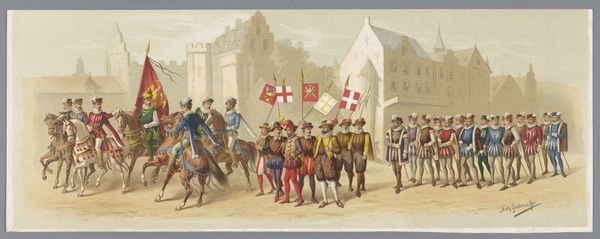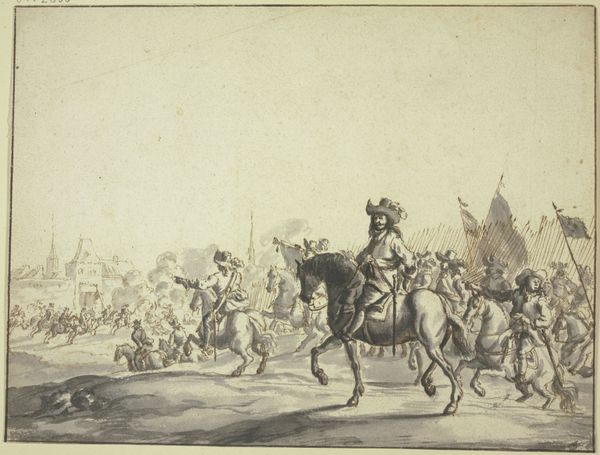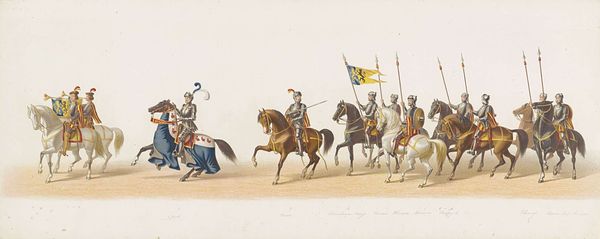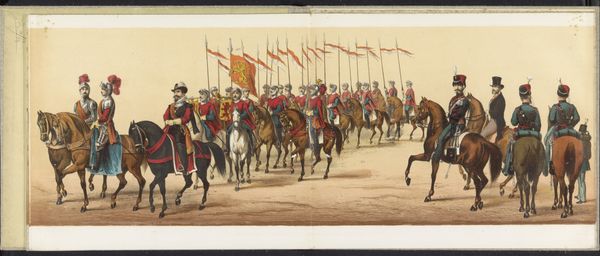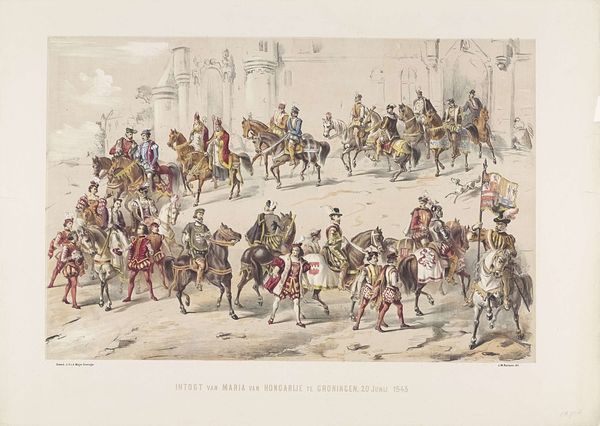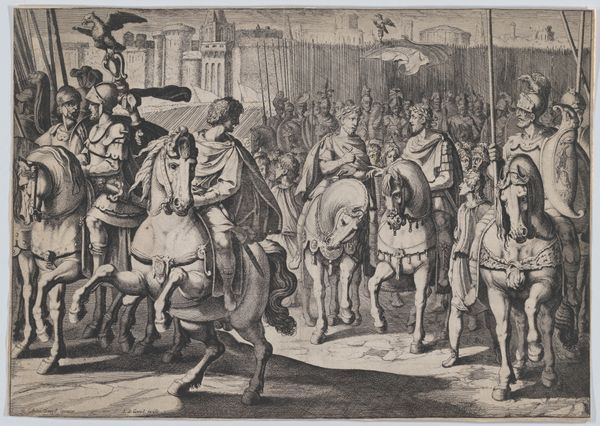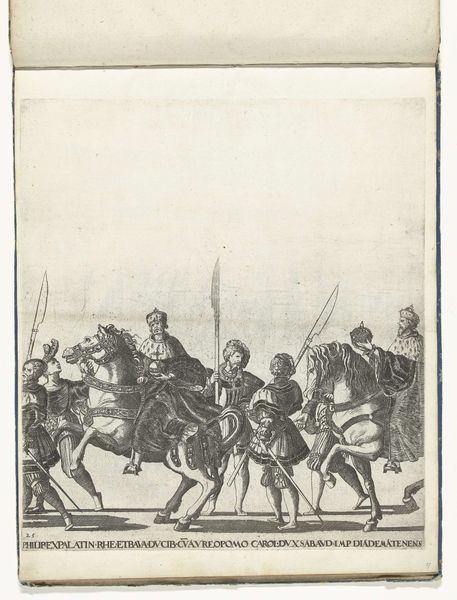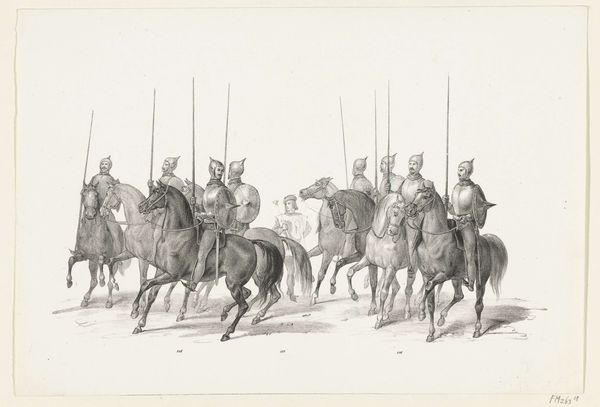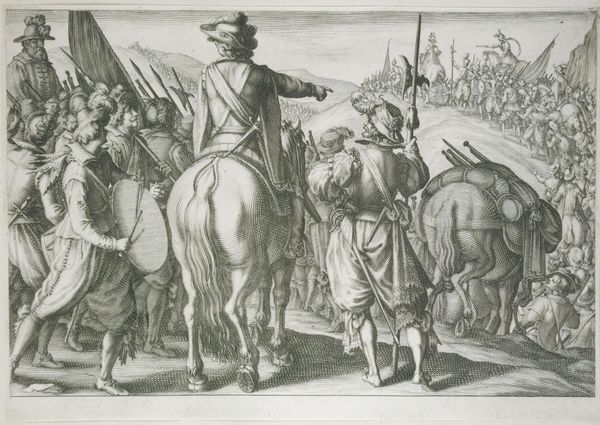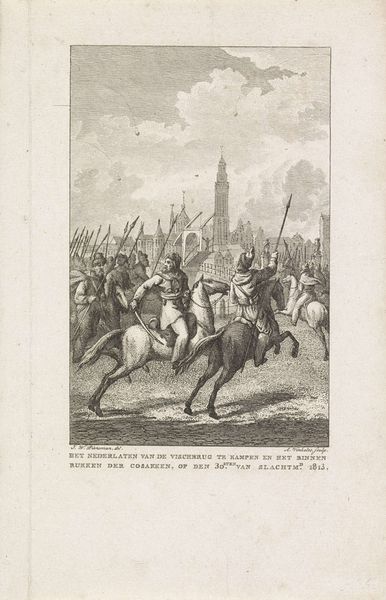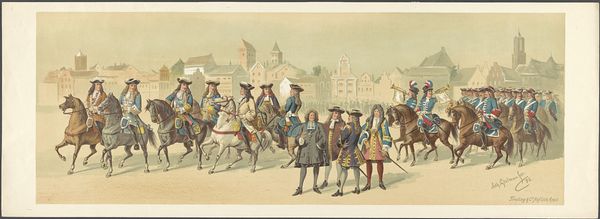
drawing, watercolor, pencil
#
drawing
#
water colours
#
watercolor
#
coloured pencil
#
pencil
#
cityscape
#
genre-painting
#
history-painting
Dimensions: height 300 mm, width 785 mm
Copyright: Rijks Museum: Open Domain
This anonymous image shows a masquerade in Utrecht, Netherlands, in 1881. It offers a glimpse into the ways in which communities construct and celebrate their histories. Here, we see a procession of people in historical costumes, likely re-enacting a key moment from Utrecht's past. The image creates meaning through the visual codes of historical dress, the architecture of the city as a backdrop, and the structured, processional format that implies civic pride and collective identity. In the 19th century, these historical pageants were ways for cities to assert their unique identities. To fully understand this image, one would need to delve into the archives of Utrecht, examining local newspapers, city council records, and accounts of similar events. The social historian uses these resources to understand the politics of public display and the ways in which communities create a shared sense of the past. The meaning of art is always contingent on its social and institutional context.
Comments
No comments
Be the first to comment and join the conversation on the ultimate creative platform.
